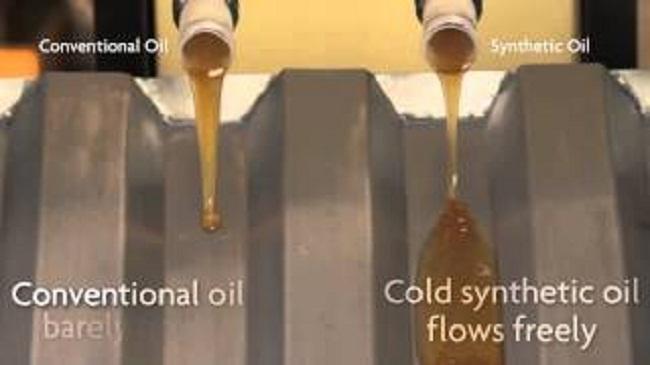When changing your car’s engine oil, there are a lot of choices. But before you pick one, you have to know the difference between synthetic oil and conventional oil. Conventional motor oil is derived directly from the crude. It is stable and allows lubrication even in rising temperature. A major difference between synthetic oil and conventional oil is that though the latter starts as conventional, it is much more improved and protective. Some synthetic oils are suitable for increasing mileage and performance of yur vehicle. Here we briefly discuss some of the advantages of synthetic oil over regular oil.
Contents
Better Lubrication
Additional lubricants in synthetic oils help keep the engine parts slick, especially during a rising temperature. As a result, your engine is less likely to wear and lasts longer.
Better Stability
Synthetic oils can maintain an overall level of thickness even in high temperatures. This effectively prevents the engine from wearing out. The oil sticks to engine parts readily. Furthermore, it saves your engine from a dry start after sitting idly for a long time.
[efsbutton class=”btn” style=”” size=”” color_class=”” align=”left” type=”link” target=”false” title=”Join our FREE CAR GIVEAWAY Campaign here” link=”https://carfromjapan.com/campaign/car-from-japan-free-car-giveaway-2018″]

Reduces Breakdown
Synthetic oils are more likely to break down. As a result, you do not have to change synthetic oils as frequently as regular oils. The enhanced properties of synthetic oils take the protective measures for your engine to a new height.
Fewer Deposits
Conventional oils break down every now and then and leave sediments on engine components. This is commonly referred to as scaling or sludge. This especially happens when you drive your car over longer periods, and that is also on rough terrains. The oil then sticks to the surface of the engine, just like your regular cooking oil does on a frying pan. Synthetic oils are however less prone to such scaling.
Synthetic oil and conventional oil affect your engine in different ways. None of them are, however, absolutely indispensable. Though synthetic oils boast a superior quality, that doesn’t mean conventional oils are obsolete; they have their own way of working and protecting the engine.




I live in mauritus which is a tropical island. I bought a Toyota aqua year 2015 model. Should I used 0W20 oil as recommended or use a 5W30 oil due to tropical climate?